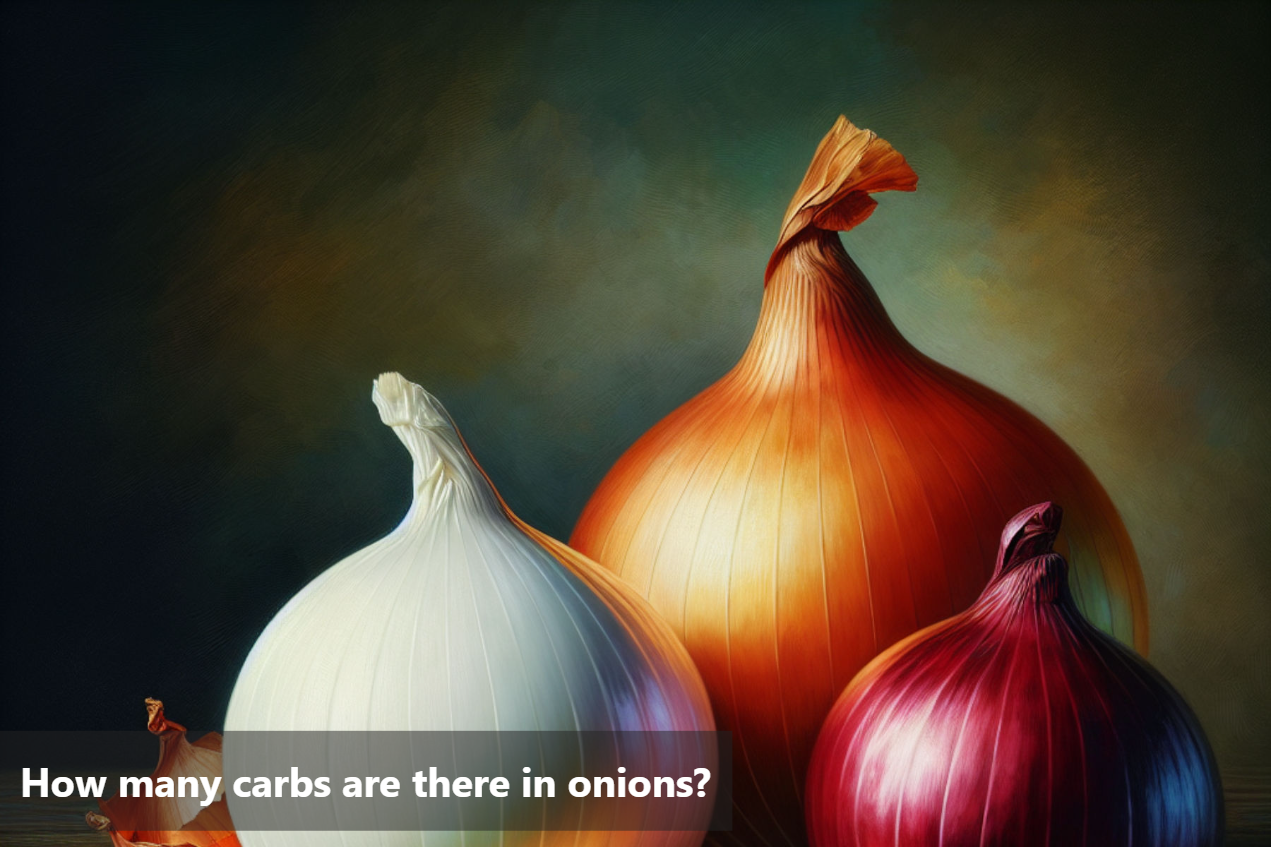
How many carbs are there in onions?
One vegetable that frequently graces our kitchens is the humble onion. While known for its flavour-enhancing properties, onions also play a crucial role in our diet in terms of carbohydrates. Understanding the carb content in onions is vital for making informed dietary choices.
When it comes to carbs in onions, it's intriguing to learn that they contain around 9-14 grams of carbs per 100 grams, making them a moderate carb vegetable. Moreover, onions are a versatile vegetable that can be enjoyed raw in salads, sautéed in dishes, or even caramelised to bring out their natural sweetness. Their carb content makes them a viable option for individuals watching their carb intake while still incorporating nutrient-rich vegetables into their meals. By unraveling the mystery behind the carbs in onions, we can pave the way for a more informed approach to our dietary habits.
Nutritional profile of onions
The main nutrients in 3.5 ounces (100 grams) of raw onions are:
|
Calories |
40 |
|
Water |
89% |
|
Protein |
1.1 grams |
|
Carbs |
9.3 grams |
|
Sugar |
4.2 grams |
|
Fibre |
1.7 grams |
|
Fat |
0.1 grams |
How many carbs are in onions?
-
Carbohydrates, although essential, can be a concern for individuals following a low-carb diet. When it comes to onions, the carb content varies depending on the type. For instance, a medium-sized red onion contains approximately 11 grams of carbohydrates, while a medium white onion has around 10 grams. These values are important to consider for those mindful of their carb intake.
-
Comparing onions to other vegetables, they generally have a moderate carb content. For example, compared to starchy vegetables like potatoes, onions have significantly fewer carbs, making them a suitable choice for individuals watching their carbohydrate consumption. This makes onions a versatile option for adding flavour to dishes without significantly impacting carb levels.
-
Incorporating onions into a low-carb diet can be easily achieved by using them in moderation and opting for lighter cooking methods like sautéing or baking instead of deep frying.
-
Additionally, incorporating onions in salads or enjoying them raw in salsas can enhance the flavour of meals while keeping carb intake in check.
Health benefits of onions
-
Onions offer a variety of health benefits that extend beyond their carb content. These flavourful vegetables are known for their anti-inflammatory properties and potential impact on blood sugar levels.
-
Onions contain antioxidants and compounds that may help reduce inflammation in the body. These anti-inflammatory properties can contribute to overall health and well-being.
-
Additionally, onions are a good source of vitamin C, which is known for its immune-boosting properties.
-
The sulphur compounds in onions have been linked to potential benefits for blood sugar levels.
-
Also, onions may help regulate blood sugar and improve insulin sensitivity, which could be beneficial for individuals with diabetes or those at risk of developing the condition.
Including onions in your diet can be a simple and tasty way to reap these health benefits. Whether cooked or raw, onions can add flavor and nutrition to a wide range of dishes. From salads to stir-fries, soups to sandwiches, there are countless ways to incorporate onions into your meals for a flavourful and nutritious boost.
Onions: A Low-Carb Option
Understanding the carb content of onions is crucial for maintaining a balanced diet. Onions are relatively low in carbs, making them a versatile addition to various meal plans. By incorporating onions into your diet, you can add flavour and nutrients without significantly impacting your carb intake.
Moreover, onions are not only a source of carbs but also contribute essential nutrients like fibre, vitamins, and minerals. Their versatile nature allows for creative culinary uses in both low-carb and balanced diets. Whether you prefer raw onions in salads or caramelised onions in savoury dishes, there are numerous ways to enjoy the benefits of this flavourful vegetable.
While onions contain carbs, they offer a range of health benefits beyond their carb content. From supporting digestion with fibre to providing antioxidant and anti-inflammatory properties, onions can be a valuable addition to a well-rounded diet. By being mindful of the carb content in onions and incorporating them thoughtfully into your meals, you can enhance both the flavour and nutritional value of your food choices.
FAQs
-
Are red onions higher in carbs than white onions?
Red and white onions have similar carb content, so there is no significant difference between the two.
-
Can onions be included in a low-carb diet?
Onions can be incorporated into a low-carb diet in moderation due to their relatively low carb count per serving.
-
Do cooked onions have more carbs than raw onions?
Cooking onions can slightly increase their carb content due to caramelization, but the difference is minimal.
-
What is the impact of caramelizing onions on their carb count?
Caramelising onions can concentrate their sugars and slightly increase their carb count compared to raw or cooked onions.
-
Are green onions lower in carbs than regular onions?
Green onions (scallions) have fewer carbs than regular onions, making them a lower-carb option for those watching their carbohydrate intake.
This Blog post is an initiative by Lo! Foods, to provide accurate and Nutritionist / Doctor approved information related to Health. Lo! Foods is India's leading brand for Everyday Functional Foods. Foods designed for specific Health conditions or Needs. Lo! Foods also runs India's largest range of Low Carb Healthy Cloud Kitchens, under the brand names of Lo!, ProteinChef, ATH (All Things Healthy) and DiabeSmart.















Leave a comment
Your email address will not be published.